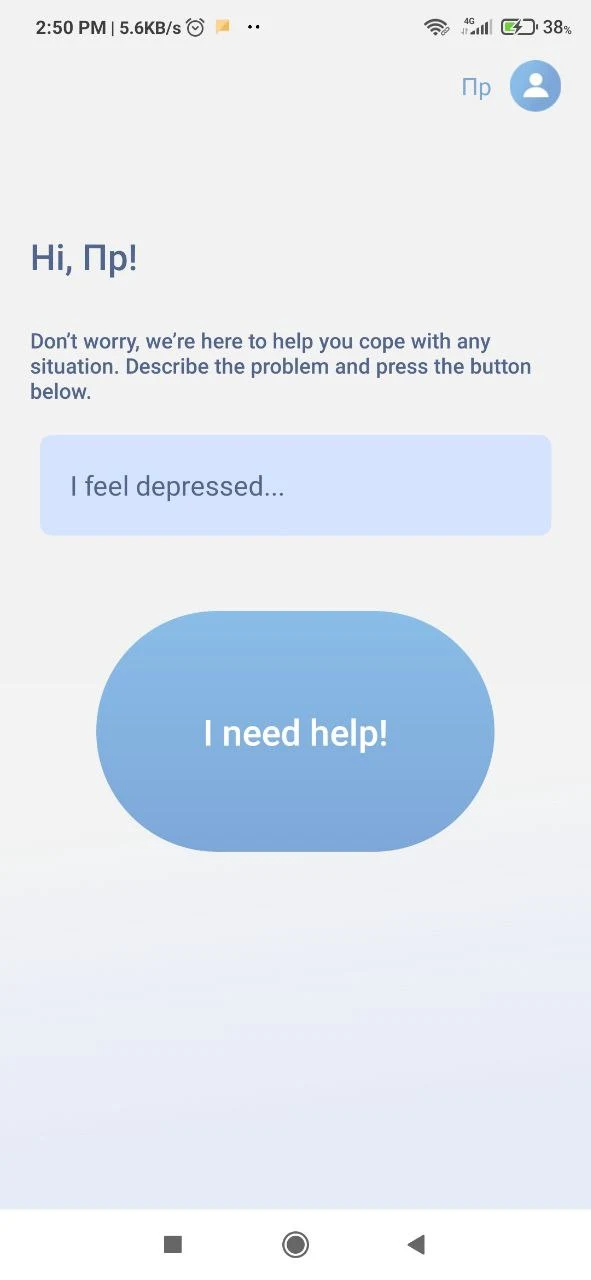Working prototype and partership with psychologists and psychiatrists in Israel

About
To provide ad hoc support for individuals experiencing trauma, aimed at helping them cope with anxiety waves and prevent the development of PTSD symptoms.
The project combines cutting-edge technology and clinical psychology to offer efficient and immediate support for people in distress, with a significant focus on personalized care and adaptability.
Additional Elements
Gaming and Achievement Dimension:
To enhance engagement and persistence for both the caregiver and the patient, including rewards and recognition for achievements.
Advantages
- Immediate and personalized support.
- Aid in preventing the exacerbation of anxiety and trauma conditions.
- Development of self-coping tools and emotional awareness.
Tools and Treatment Strategies
- Personalized Toolbox for the Caregiver: contains prepared mantras, emojis, audio clips, and wise sayings. Over time, the toolbox will adapt and evolve based on the specific patient’s preferences and effectiveness of the tools, emphasizing more on the elements that worked well for the particular patient, while gradually replacing less effective tools with new ones.
- Treatment Goal: To distract the patient and help them cope with anxiety.
Technology and Functioning
- Physical Bracelet: the patient will have a bracelet with a secret button. Pressing this button opens the application on their phone. The bracelet also measures the pulse, providing an additional metric for the patient’s condition.
- Emergency Response: upon pressing the button, a person with a similar background of trauma or a professional volunteer can respond to the call.
-
Application Interface:
- A 2-minute timer for a concise interaction.
- Display of the patient’s current pulse rate.
- A subjective scale for the patient to indicate whether their stress level is rising or falling.
Enhanced Features
- Patient Experience upon Activating SOS: when the SOS button is pressed, the smartphone display shows categories related to the patient’s mental state, such as feelings of despair or different types of psychological stress. This allows for immediate understanding and response to the patient’s specific needs.
- Each group can participate either as volunteers or for a fee, considering this is not formal therapy but brief support.
Three Tiers of Caregivers:- Individuals who have experienced PTSD and wish to help.
- Professional caregivers like psychologists, social workers, and other therapists.
- Empathetic laypeople, such as compassionate retirees, with a psychological orientation.
- Immediate Care and Diagnostic Activities: It’s crucial that the patient starts receiving care from the first moment. The application will prompt the patient to answer some questions and engage in specific game-like tasks. This not only provides immediate engagement but also helps the software to create a better diagnosis and caregiver match.
Screenshots
Downloads





